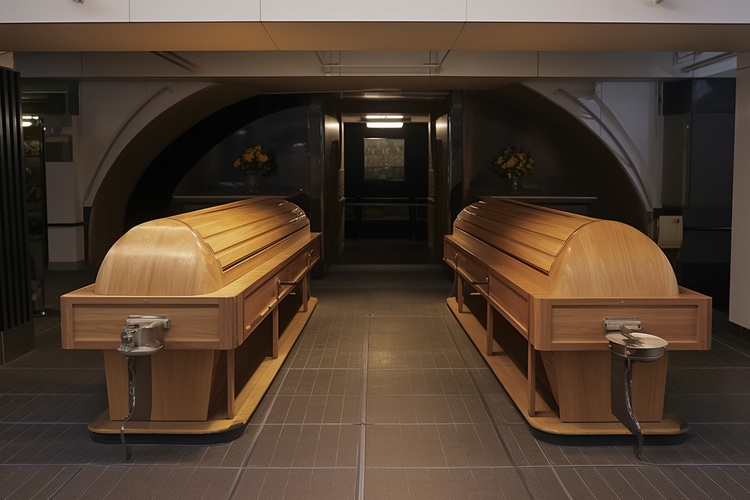Understanding Cremation Services: A Comprehensive Cost Guide
Cremation services have become an increasingly common choice for end-of-life arrangements, offering families a dignified and often more affordable alternative to traditional burial. This guide examines the various costs associated with cremation services and helps you understand what factors influence pricing in your local area.

What Determines Cremation Service Costs?
The cost of cremation services varies significantly based on several key factors. The type of cremation selected is perhaps the most influential determinant. Direct cremation, which involves minimal services without a viewing or ceremony, typically represents the most economical option. In contrast, full-service cremation includes elements like a viewing, formal funeral service, and sometimes rental of a ceremonial casket, substantially increasing the overall cost.
Geographic location also plays a crucial role in pricing. Urban areas generally command higher prices due to increased operational costs and real estate values, while rural locations may offer more affordable options. Additionally, the specific provider chosen influences cost – funeral homes traditionally charge more than dedicated cremation societies or direct cremation providers because they maintain more extensive facilities and offer comprehensive service packages.
Understanding Local Cremation Pricing Options
Cremation services typically fall into three primary categories, each with distinct pricing structures. Direct cremation represents the most basic and affordable option, typically ranging from $800 to $2,500. This service includes transportation of the deceased, the cremation process itself, and return of the remains in a simple container, without additional ceremonies or viewings.
Memorial cremation offers a middle-ground approach, generally costing between $1,500 and $4,000. This option includes the direct cremation services plus a memorial service, which can be held days or weeks after the cremation occurs, providing families with flexibility in planning.
Full-service cremation presents the most comprehensive option, ranging from $4,000 to $7,000 or more. This package typically includes elements of traditional funerals such as embalming, viewing or visitation, a funeral service before cremation, and sometimes rental of a casket for the ceremony, explaining the significant price difference from other options.
How to Find and Compare Local Cremation Prices
Researching cremation providers in your area requires a methodical approach to ensure you receive accurate information. Begin by contacting multiple providers to request their general price list (GPL), which federal law requires them to provide upon request. This document outlines all services and their associated costs, allowing for direct comparisons.
Online research can supplement these efforts, as many providers now list their basic service packages and prices on their websites. However, be aware that these listed prices may not include all potential fees. When comparing options, ensure you’re evaluating equivalent services – a lower-priced package may exclude services that are standard in a higher-priced option.
Phone consultations provide another effective way to gather information. Prepare specific questions about their cremation processes, included services, and any potential additional fees before calling. Most importantly, request an itemized quote in writing to avoid any misunderstandings about the total cost.
Additional Expenses to Consider
Beyond the base cremation fee, several additional expenses may significantly impact the total cost. An urn for the cremated remains represents one common additional expense, with prices ranging from $50 for basic containers to several thousand dollars for customized or artistic options. If a memorial service is planned, venue rental, catering, and other event-related costs need to be factored into the budget.
Death certificates, typically required for legal and administrative matters, generally cost $10-25 per copy, with multiple copies often needed. Transportation costs may apply if the death occurs far from the cremation facility or if the remains need to be shipped to another location. Optional services like witnessed cremation, where family members can be present at the beginning of the process, typically add $100-300 to the base price.
| Service Type | Typical Price Range | What’s Included | Additional Costs |
|---|---|---|---|
| Direct Cremation | $800-$2,500 | Basic container, transportation, cremation process | Urn, death certificates |
| Memorial Cremation | $1,500-$4,000 | Direct cremation plus memorial service | Venue, catering, memorial items |
| Full-Service Cremation | $4,000-$7,000+ | Viewing, ceremony, basic casket rental, cremation | Premium urns, additional memorial services |
Prices, rates, or cost estimates mentioned in this article are based on the latest available information but may change over time. Independent research is advised before making financial decisions.
Working with Local Cremation Providers
Establishing a positive working relationship with cremation service providers involves clear communication and understanding of their processes. Begin by scheduling in-person consultations with providers you’re considering. These meetings allow you to assess not only their facilities but also how comfortable you feel with their staff and approach to service.
During consultations, don’t hesitate to ask detailed questions about their specific procedures, including how they identify and track remains throughout the cremation process. Reputable providers will welcome these questions and provide transparent answers. Ask about their staff credentials, years in business, and any professional affiliations or certifications they hold.
Many providers offer pre-planning options, which can provide both financial and emotional benefits. Pre-planning allows you to lock in current prices, potentially saving money compared to future rates. It also gives you time to consider options carefully, without the emotional strain that accompanies making these decisions immediately after a loss.
The cremation process is deeply personal, and the right provider should respect your family’s cultural, religious, or personal preferences. Whether you’re seeking a provider for immediate needs or planning ahead, focusing on transparency, respect, and clear pricing will help ensure the process honors your loved one appropriately while remaining within your budget constraints.




